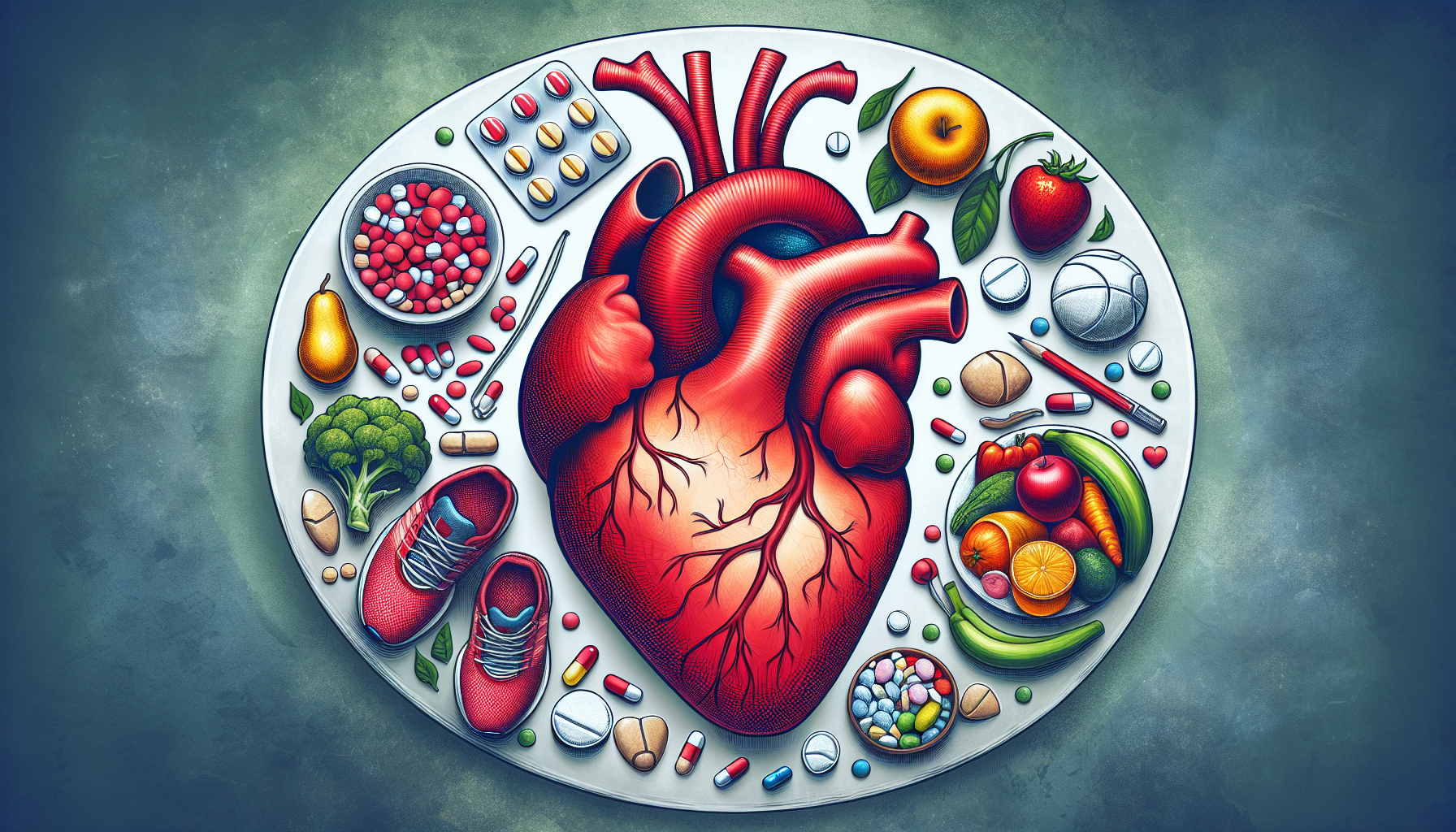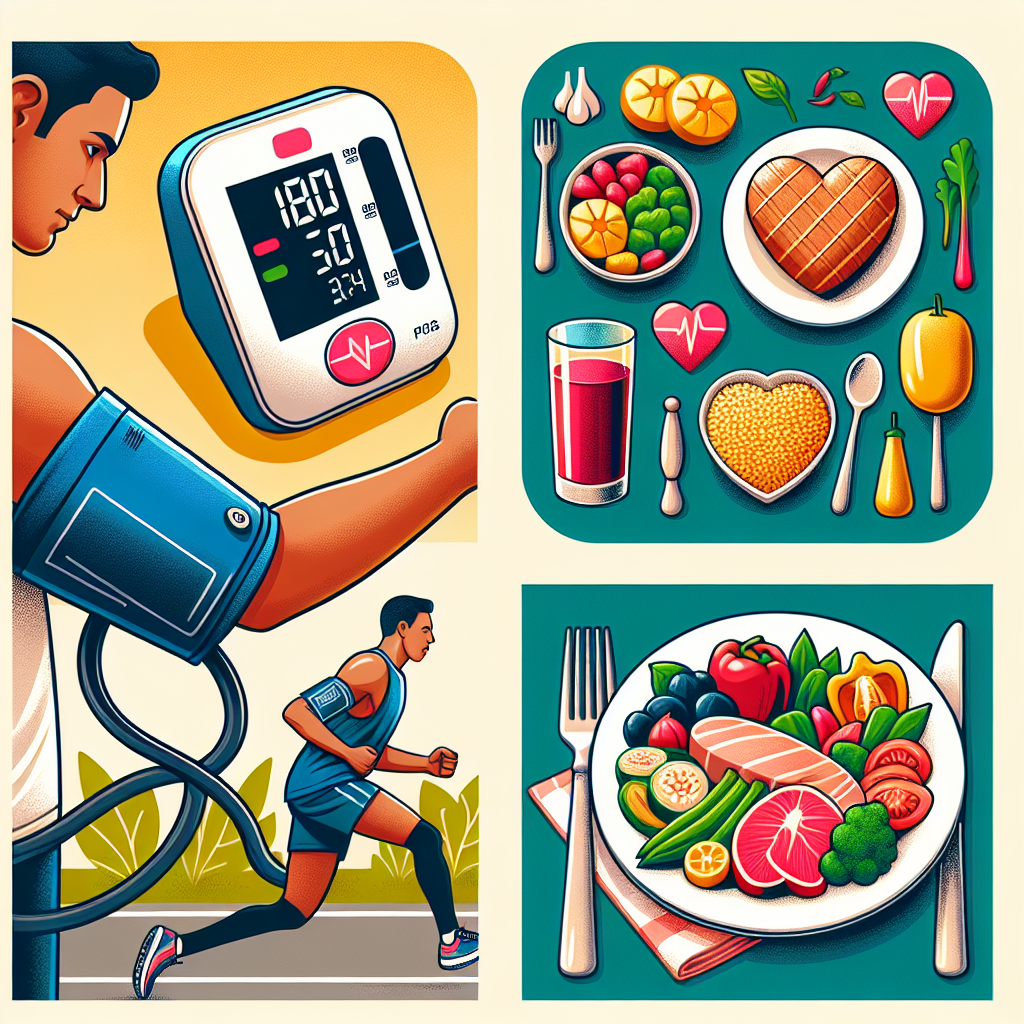The intricate interplay between heart health and diabetes is a critical issue that touches millions of lives around the world. Both conditions are intrinsically linked, with diabetes significantly increasing the risk of developing cardiovascular diseases. Effective management of these risks is not only possible but imperative for those seeking to maintain a healthy and fulfilling life.
Understanding the Connection
Diabetes, particularly type 2 diabetes, is a chronic condition that affects the way the body processes blood sugar (glucose). High blood glucose levels can lead to damage in the blood vessels and the nerves that control the heart and blood vessels. As a result, people with diabetes are at a higher risk of developing cardiovascular problems, including coronary artery disease, heart attack, and stroke.
To understand more about the impacts of other health conditions on cardiovascular health, visit Avix Health’s comprehensive guide on cardiovascular health.
Risk Factors and Prevention
Preventing heart disease starts with understanding and managing the risk factors associated with diabetes. These include high blood pressure, abnormal cholesterol levels, obesity, physical inactivity, and smoking. Fortunately, there are numerous strategies one can adopt to mitigate these risks:
1. Heart-Healthy Diet
Embracing a heart-healthy diet is a powerful tool in the fight against diabetes-related heart disease. This involves consuming a balanced diet rich in fruits, vegetables, whole grains, lean proteins, and healthy fats while limiting saturated fats, trans fats, sodium, and added sugars.
For inspiration on maintaining a heart-healthy diet, check out these heart-healthy recipes that are both nutritious and delicious.
2. Regular Exercise
Physical activity plays a crucial role in managing diabetes and supporting heart health. Aim for at least 150 minutes of moderate-intensity exercise per week. This can include activities like brisk walking, cycling, or swimming, which help control blood glucose levels, lower blood pressure, and improve cholesterol levels.
Discover more about the connection between exercise and heart health in Exercise and Cardiovascular Health: The Heart Connection.
3. Monitoring and Medication
Regular monitoring of blood glucose levels and adhering to prescribed medications can help control diabetes and by extension, protect heart health. Medications may include insulin therapy or oral drugs that help manage blood sugar levels.
4. Lifestyle Changes
Lifestyle changes such as quitting smoking, reducing alcohol intake, and managing stress can have a profound impact on reducing the risk of heart disease for people with diabetes.
The Role of Regular Check-Ups
Regular check-ups with healthcare providers are essential for monitoring the health status of individuals with diabetes. These check-ups can catch early signs of heart disease and lead to timely interventions.
Learn about the importance of these check-ups in detail by reading The Importance of Regular Heart Health Check-Ups.
Innovations in Diabetes and Heart Health Management
The medical field has made significant strides in developing innovative technologies and treatments for managing both diabetes and heart health. Continuous glucose monitoring systems, advanced insulin delivery devices, and cutting-edge medications are just a few examples of how technology is transforming the management of these conditions.
For more information on advancements in treatment, visit Advancements in Cardiovascular Disease Treatment.
External Resources for Further Reading
To delve deeper into the subject, here are some niche resources that provide valuable insights:
- American Heart Association’s Diabetes and Your Heart offers a comprehensive look at the interplay between diabetes and heart health.
- The National Institute of Diabetes and Digestive and Kidney Diseases (NIDDK) provides an informative section on preventing heart disease and stroke in people with diabetes.
- Diabetes UK’s Research on Diabetes and Heart Disease hosts a collection of research projects focusing on the relationship between diabetes and heart disease.
Empowerment Through Education
Education is a powerful tool in managing the risks associated with heart health and diabetes. Understanding the causes, risks, and preventive measures empowers individuals to make informed decisions about their health.
Conclusion
The relationship between heart health and diabetes is complex but not beyond our control. Through diet, exercise, medication, and lifestyle changes, individuals can manage their diabetes and reduce their risk of heart disease. Regular check-ups and staying informed through credible resources are key components of a successful management strategy. By taking an active role in health management, individuals with diabetes can lead healthier, more vibrant lives.
As healthcare continues to advance, staying abreast of the latest developments and treatments is essential. Embrace the wealth of knowledge and resources available, and always consult healthcare professionals to tailor a management plan that is suited to your unique needs. With the right approach, managing the risks associated with heart health and diabetes is within reach.



